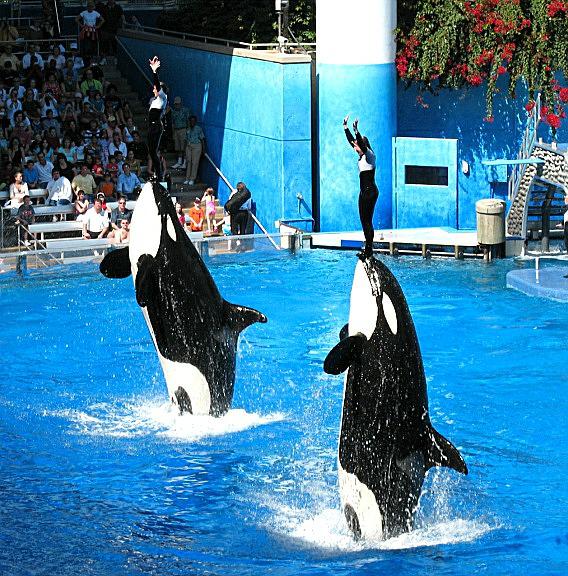mouse
Giga Poster
Sorry back again, enjoying the debate  .
.
Tilikum has been responsible for the brutal deaths of three people. There have also been numerous attacks on humans, as well as injuries resulting in conflicts between captive killer whales (here are some details of attacks). Personally I wouldn’t exactly call that calm or positive behaviour. The whales clearly have aggressive tendencies which makes me question Sea World’s training practices. (BTW I thought positive reinforcement meant to reward animals with food when they are good, and withhold food if they’re not?)SilverArrow said:Tilikum, and all the whales and other animals get a choice to participate in training sessions and do not get fold deprived if they choose not to participate. A hungry animal is more likely to be aggressive-you want to promote calm, positive behaviour.
If ancestral humans were forcibly taken from their natural habitat and made to eat grains then I’m sure it would be a different story. You just can’t compare the lifestyle choices of humans to the forced lifestyle of captive killer whales.Joey said:Humans evolved to not eat grains, but guess what we do? Eat a lot of grains. The food industry even claims they're healthy for us!
I know that in many Zoos food is hidden in enclosures or served in a certain way to mimic natural feeding patterns and provide the animals with the stimulation they need, therefore keeping them healthy. Killer whales need the mental and physical stimulation that comes with hunting, it’s an instinct they have evolved to survive in the wild. To suddenly deprive them of that stimulation causes distress – they don’t understand the concept of a ‘choice’ as to how they get their food.Joey said:Animals, given the choice, would rather not exercise unnecessarily. Exercise is costly in the wild, something they MUST do to find food.
To say the orca can immediately adapt to cope and thrive in an unnatural environment seems like more of a gross misunderstanding of nature. We can tell how most animals cope with things, scientific research in animal psychology and behaviour has advanced since the dark ages. We know that animals do not cope well in unnatural or forced environments, hence the condemning of practices such as dancing bears or performing circus animals.Joey said:No, we cant tell how well any animal copes with... Well anything, but that works both ways. To say the orca must be miserable because they aren't living as they evolved to live is such a gross misunderstanding of nature.
Sadly I doubt the whales are thinking “I know we’re stuck in a confined, inadequate environment, but at least we get great healthcare.” Saying that, there are still numerous common health problems concerning captive orcas such as dorsal fin collapse, pneumonia and cataracts (some info here).Joey said:The SeaWorld whales in particular get the exact recommended amount of exercise, nutrition. Etc. Their health care is better than that of most people in America, let alone the world.
Um… isn’t this debate about the morality of keeping killer whales in captivity? No one mentioned anything about it being more important than people dying for whatever reason. I could just as easily go into the Valravn topic and criticise people for worrying about its construction, as people are dying because they can’t get access to water or doctors.Joey said:Frankly, and this is just me so please don't take this personally, there's something gross about worrying over the care for a few orcas at SeaWorld, whilst people are dying because they can't get access to water or doctors.

 .
.
